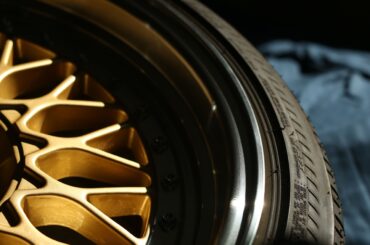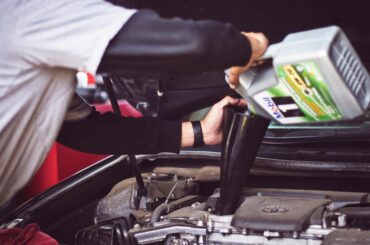Guide to keep engine overheating under control
Engine overheating troubleshooting is One of the most common causes of engine failure. In the event of an overheating car, it is imperative that you pull over immediately and begin investigating the cause of the issue. Consequences may be disastrous if you keep driving an overheated automobile.
In the middle of summer, no one wants to be out on the road and suddenly see smoke rising from under the hood. It is possible for engines to overheat, and if the correct measures aren’t taken, the damage might be irreparable. The trip may be ruined if the engine overheats.
We at Goodyear Auto Service want to make sure you know what to do if your car’s engine starts to overheat while you’re driving and why it happens.
When the needle on the temperature gauge enters the red zone or the “Check Engine” or “Temperature” malfunction indicator light illuminates on the dashboard, you know your automobile is overheating. When left alone, the fluid in the radiator will eventually boil over, sending a cloud of steam out of the engine.

Leaks in the cooling system might be to blame for frequent vehicle overheating and coolant loss. If your car overheats in typical conditions, you should inspect the water pump, adjust or replace the auxiliary belt, and top up the cooling system with fluids.
If your car often overheats, you should inspect the pressure cap first. It is possible for the cooling system to fail due to a deteriorating cap gasket that allows pressure to escape. You may get your cap checked for quality at most gas stations.
When an engine becomes too hot, what happens?
Even while modern engines are normally engineered to last, the gaskets, hoses, and seals that are meant to keep the engine running might be damaged if subjected to temperatures that are much higher than the normal operating temperature.
Vehicle overheating may be caused by a number of difficulties, including leaks in the cooling system, clogged hoses due to corrosion and mineral deposits, faulty radiators, or malfunctioning water pumps. Having it checked out on a regular basis might help prevent any overheating concerns from occurring.
Cause #1: No Coolant
Ethylene glycol, an antifreeze, is what makes up a coolant when mixed with water. Unlike water, this substance freezes at a lower temperature. Therefore, it’s a more effective coolant than water in the winter.
A coolant’s job is to prevent the engine from becoming too hot and keep it running smoothly. Overheating may occur in an engine if the coolant doesn’t make it to the radiator because of a faulty pump, a blocked radiator hose, or a leaking hose.

Thermostat malfunction
The thermostat regulates the temperature of the engine’s coolant. When the engine temperature rises, the valve opens and coolant may flow through. When the engine is chilly or at a low RPM, the thermostat’s primary valve remains closed.
If the thermostat can’t stop the flow of coolant, the engine could overheat. It happens when the engine gets too hot because the thermostat can’t open the valves to let coolant into the radiator.

A broken fan in the radiator
After picking up heat from the engine, the coolant makes its way through the radiator. The radiator’s fan reduces its temperature by facilitating heat transmission from the coolant to the surrounding air.
The effectiveness of the coolant is diminished if the cooling fan is not operating at its peak. A faulty electric motor powering the radiator fan might be the source of this issue.
The car has low oil pressure
Car engine oil not only lubricates moving parts but also helps keep things cooler within the engine. Low oil levels in your car’s engine might also lead to overheating.
The expansion tank sustained damage
A coolant expansion tank is standard equipment in modern cars. The system controls the pressure of the whole cooling system. But if the radiator’s pressure builds up and the expansion tank can’t let it out, the engine might overheat.






